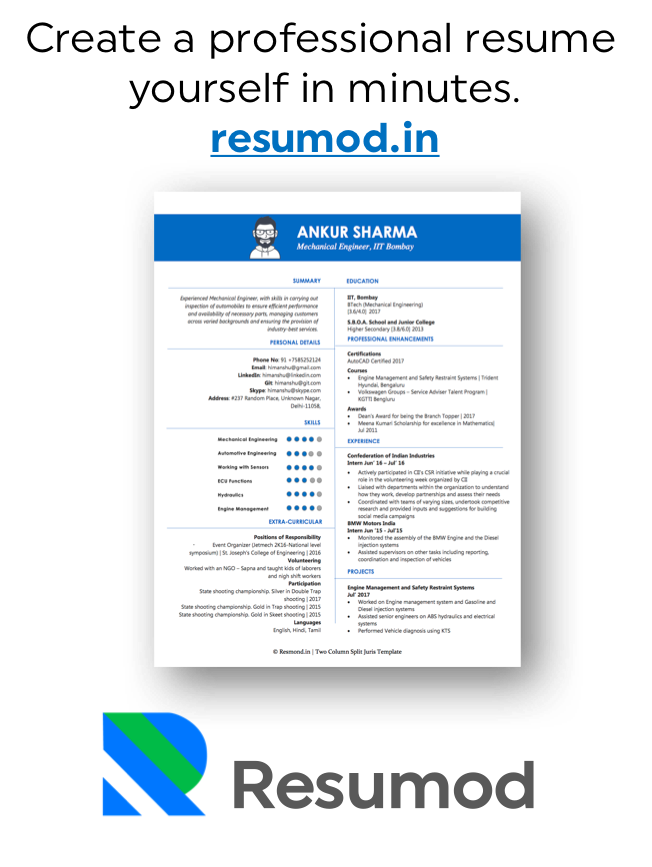Almost all articles on career related matters and job interviews focus on prospective employees and their conduct. But while it is important for a candidate to be at his best show during an interview, it is equally important for an interviewer to be impressive as well. The interviewer projects the entire company’s image on the candidate and needs to do justice to it. For if she fails the candidate may lose the interest to join the employer. After all, who wants to join a poorly represented organization!
Keeping that in mind and some practical experiences of interviewers behaving weirdly during interviews, I have tried to bring out some tips for potential panellists on the face of the table. Read on…
1. Arrive on time and apologise if you are late. Nobody wants to be taken for granted, not even your future employee. You might be hiring for the junior-most role in your organization, but if you treat your employee with respect on the first day itself, the respect will come back to you and the gesture will leave a lasting impression in her memory. The company’s brand image will amplify with not just that one person, but with everyone she talks to about the company. So if you are stuck in a meeting and arrive late for the face-to-face, apologise and let them know why you are late. They might not care but it will definitely lift your and your company’s image.
2. Dress appropriately (obviously). If a present employee of the company, who is going to represent the organization in front of a say 22 year old graduate, is shabbily dressed, what impression will that leave in the mind of the candidate? Fresh graduates form first impressions which truly last. So an interviewer needs to be smartly dressed. A pen in the breast pocket adds an additional impression as it conveys stature and confidence. But keep only a single pen, not too many!
The dress: If an interviewer comes in a neatly ironed suit, the graduate will feel a little frightened because of a fear of the position of the interviewer. If he comes in a lose shirt and tie and dirty shoes the interviewee may never show up again at the company (he wouldn’t want to end up looking like him!). So, the best way to show up for an interview is in a neat tucked in formal shirt and trousers preferably with a tie. And polished shoes are a must. Did I mention the pen?
3. Talk politely. As an interviewer you need to be polite during the entire conversation. The interviewee may not be a particularly intelligent candidate suited for the job, but being polite and not getting irritated during the interview will not harm anybody. If you talk politely and end the interview graciously, the candidate’s confidence and self-respect will remain intact and he will be encouraged to try again. If you are impolite or visibly show your irritation at the candidate’s answers, it will not only harm his morale but also he will not be mentally confident enough to apply to your company again. Remember to treat an interview with objectivity – it is not a battle of wits and ego.
4. Offer water (even if they say no, which they will). Always have a glass of water ready at the table for the candidate. Not everyone is born with a great lubricated throat. There are people who can keep talking at lengths without a sip of water. There are others who cannot. Then, there is thirst. So, keep a water bottle or a glass of water at the table and offer the candidate once before you start. It will calm the candidate’s nerves and she’ll be able to answer better.
5. Make the candidate feel comfortable. This follows the water tip. Start with some loose talk; ask them how they came and if they had any difficulty finding the venue. All this would help the candidate settle her nerves before the interview and she will realize that the person on the other side of the table (you) is only a human being. This will help in bringing out the best out of her and you will get a chance to judge the candidate at her peak performance.
6. Don’t ask stupid questions. Remember that the interview is only about judging the candidate on how well she can do the job (for which she is being hired), not about how intelligent she is on a scale of 1-10. So don’t let the interview drift towards an IQ test. Ask relevant questions. (Remember the Einstein quote on judging a fish on its ability to climb a tree? Don’t try that)

You may ask them where they see themselves in five years but remember that even you do not know the sure shot answer to such a question. And please don’t ask them if they are ready to work overtime (nobody wants to!). Instead, give them case studies to work on, ask them puzzles to see how well they can think on their feet and talk to them about a particular problem you are facing and hear the solution out.
7. Let them know what project they will be working on. Most candidates will ask. But even if they don’t, tell them what project they will be working on and what would be expected of them (in terms of skills and output delivery). A candidate will be more inclined to join a small firm with clarity of project work than a large company with no clear role or project assigned. In fact if the project seems challenging, the candidate will be better equipped at the first day and will be enthusiastic about giving his 100% on the job.
8. Be aware of what your company does! Absolutely essential. As an interviewer, you need to know what your organization does. Don’t try to dodge questions thrown at you by the candidate. They don’t know what you do, so tell them. Don’t counter question them by saying, “Why don’t you tell me?” It doesn’t leave you in the best regard. Understand what your company does, how many departments there are, which department the new candidate will be working in and if possible the names of a few clients too. All this will leave a good impression in the candidate’s mind.
If an interviewer is successful in projecting a positive image in front of the prospective employee, not only will she be inclined to join but will also be enthusiastic in sharing her experiences with others. Remember that a talented hire will always bring more talented individuals to work at the organization.



